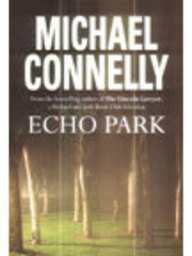
Harry Bosch is still on the job, working out of LAPD's Open Unsolved Unit, and despite his best efforts at holding his antiestablishment impulses in check, he's in trouble again. This time the problem is an unsolved case that has haunted Harry since 1993. Now it appears that the killer has been caught, apprehended by chance and connected to a string of nine additional murders. As cops and prosecutors debate a plea bargain--the killer will confess to the murders if he can avoid the death penalty--it is revealed that Harry and his partner may have missed a crucial clue back in 1993 that could have solved the case then and prevented the later murders. But something doesn't feel right. As in The Closers (2005), Harry once again may be the victim of a politically inspired conspiracy, or "high jingo" in cop talk. Connelly remains a master at constructing plots that, like contrapuntal themes in music, echo one another. As we watch Harry confront the train wreck that could destroy his career, we also see him dealing with a potentially even more serious crisis being played out internally: Can he recover from the knowledge that his oversight may have resulted in nine murders? Is he a good cop with no tolerance for phonies, or is he, in fact, as his enemies have always argued, an uncontrollable rogue whose hubris costs lives? The answers to these questions are not as clear cut as one might assume, with Connelly forcing Harry's many fans to accept the harsh truth that the genre's most compelling hero may also be one of its most flawed. Superior crime fiction, as suspenseful as it is psychologically acute. Bill Ott

